
The Best Oils For Oily Skin & Acne-Prone Skin
We recommend helpful products in our articles. Read our full disclosure here. The content on this website is not intended to be a substitute for professional advice, diagnosis, or treatment.
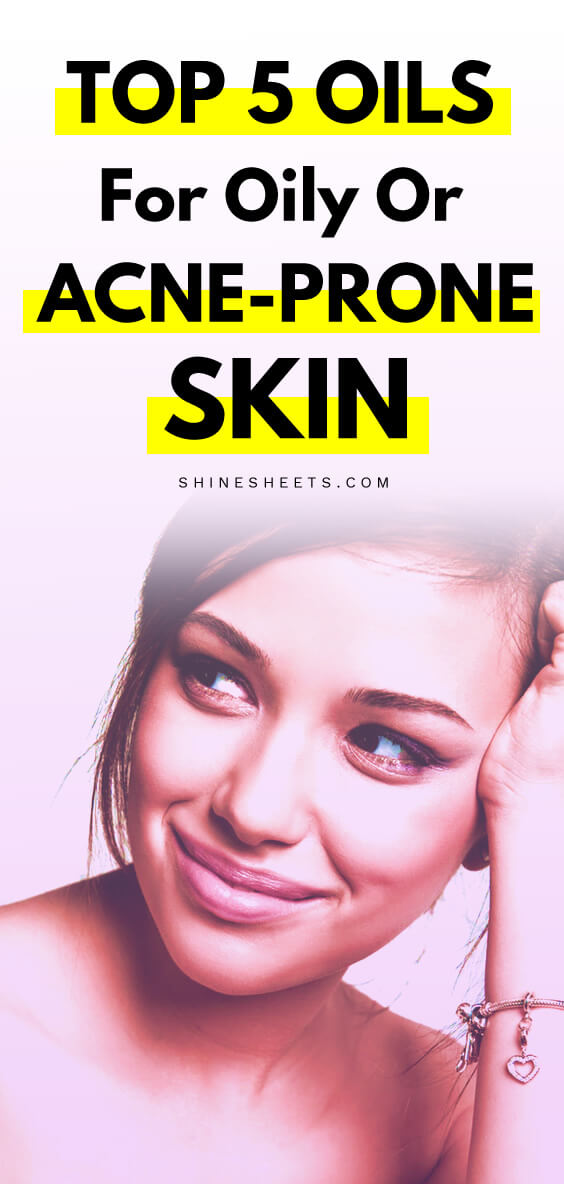
Research has shown that people suffering from acne lack an essential fatty acid, present in many carrier oils.
Believe it or not, there are beneficial and healing effects in natural oils for oily skin.
I know it sounds strange, and that’s what I said when I first heard it: oils for oily skin?
Really?
After all, when suffering from oily skin and acne, every single step in our skincare routine is extremely important.
That’s why it’s crucial to use only the right products to avoid breakouts, pimples, and red skin.
Well, carrier oils can help you get there!
That’s why we’ll talk about the best oils that can benefit oily skin and improve it.
You can easily add these to your skincare regimen; some you already know; others may be new to you.
In any case, let’s have a look at how you can make the most of oils if you’re dealing with oily skin!
Wait… Oils for oily skin?
Does it even work?
Before going any further, let’s dive into the chemistry behind the oils and the phenomenon of oily skin very quickly.
There are two important fatty acids that influence the pore-clogging process.
Oils rich in linoleic acid are more appropriate for oily skin and acne-prone skin.
Studies have shown that people with low linoleic acid on their skin are more prone to acne. (1)
On the other hand, oils rich in oleic acid are more suitable for dry skin.
These can clog pores and are also greasier than oils rich in linoleic acid.
Now that we know that it’s totally fine to use oil in your skincare, let’s take a look at the best oils for oily skin!
6 best oils for oily skin and acne-prone skin
While there is a number of non-comedogenic oils for oily skin, there are a few that stand out easily.
That’s because they’re very good at multitasking and your skin will notice it soon enough.
Most of the oils below are loaded with nutrients that not only improve the overall health of your skin but also help prevent acne and help return the glow to your skin.
Let’s have a look at these amazing oils.
There’s also a recipe for an oil serum waiting for you below!
1. Hemp seed oil for oily skin
Hemp seed oil is packed with nutrients that can reduce inflammation of the skin, boost the healing process, and reduce dryness of the skin.
With vitamins D and E, it helps to reduce acne and it’s commonly used to treat other skin conditions as well.
Essential fatty acids help to heal the skin even further and even balance sebum production with regular use.
A short overview of why Hemp seed is one of the best oils for oily skin care:
- Rich in linoleic acid;
- Low in oleic acid;
- comedogenic rating: 0;
- Appropriate for most skin types.
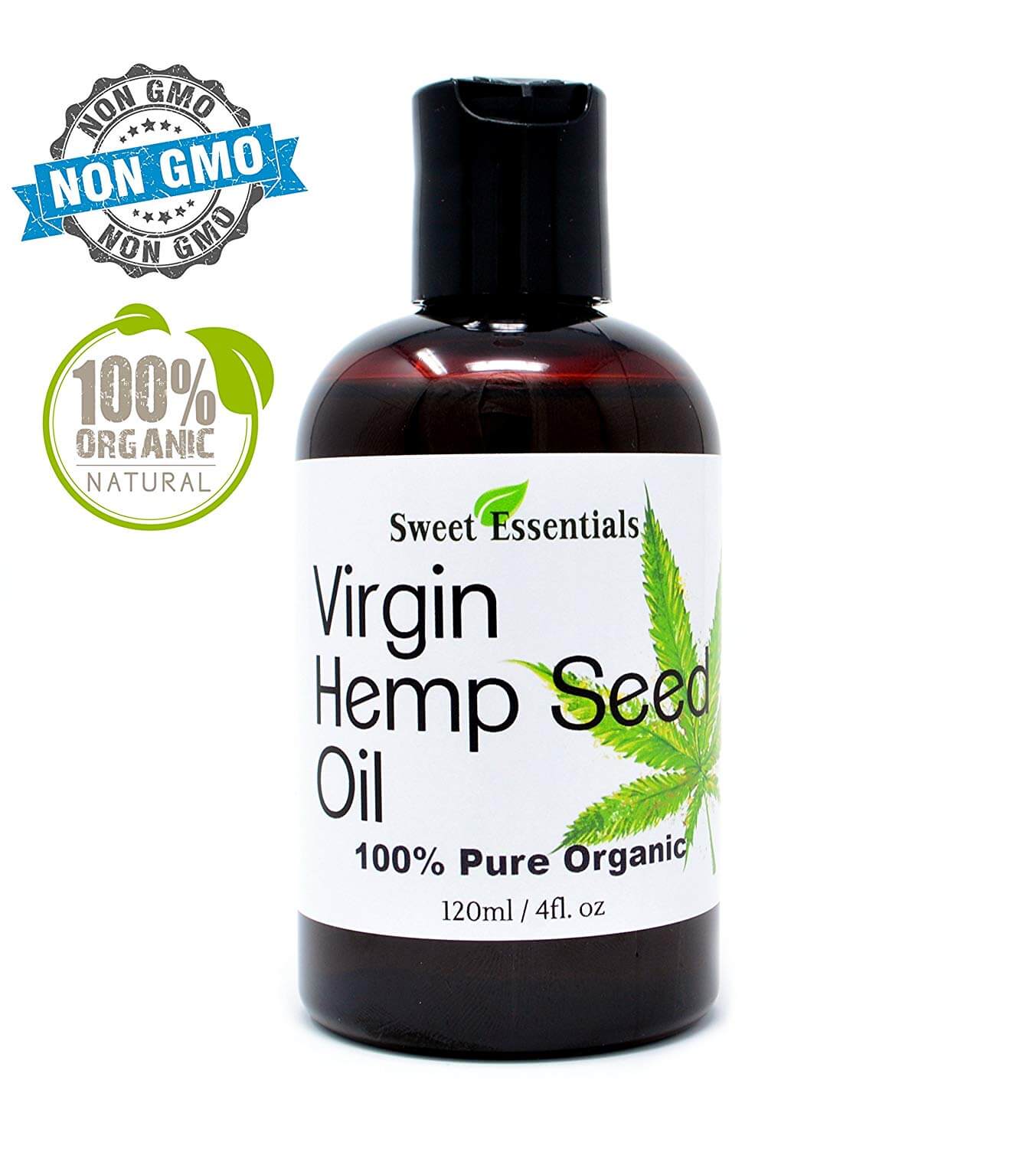
Organic Extra Virgin Unrefined Hemp Seed Oil
2. Rosehip seed oil for oily skin
While it won’t give you results overnight, the rosehip seed oil is an amazing oil that can penetrate the skin’s surface and nurture it from the inside out.
It’s not as popular as it should be, but its healing powers are amazing.
This orange oil is full of vitamins, antioxidants, and essential fatty acids that contribute to healthier skin and bring back the glow while maintaining the skin hydrated and nourished.
It’s incredibly nourishing for the skin and highly recommended for acne-prone skin, but other skin types can use it as well.
A short overview of why Rosehip seed is one of the best oils for oily skin care:
- A generous amount of linoleic acid;
- The comedogenic rating is 1;
- Helps to eliminate acne scars;
- Appropriate for all skin types.
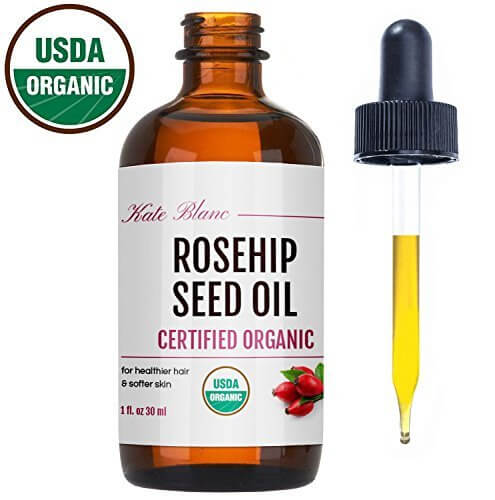
Rosehip Seed Oil by Kate Blanc
3. Argan oil for oily skin
Anti-inflammatory and antioxidant, argan oil can be of help when it comes to fighting oily skin.
While argan oil is a bit greasier than others on the list, the use of this luxurious oil goes all the way back to Moroccan queens centuries ago!
Argan oil promotes effective healing and beneficial properties for the skin, whether you’re dealing with pimples, acne, and even acne scars.
It’s an emollient that forms a protective barrier over the skin’s surface, feeding it with fatty acids, vitamin E, and other vital ingredients.
A short overview of why Argan is one of the best oils for oily skin care:
- Almost the same amounts of linoleic and oleic acids;
- The comedogenic rating is 0;
- Appropriate for most skin types.
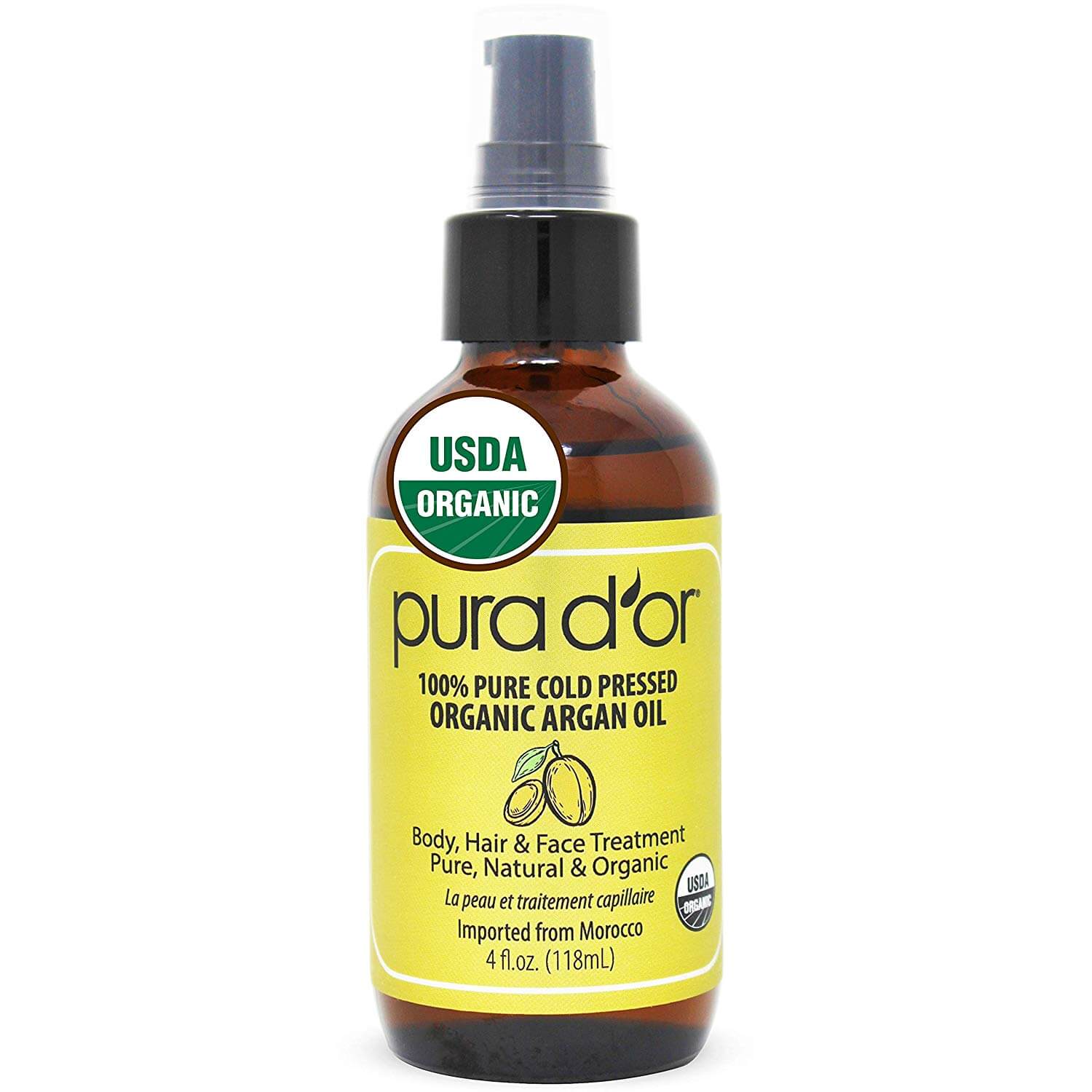
4. Grapeseed oil for oily skin
Grapeseed oil absorbs quickly into the skin and leaves it soft.
What’s more, it also helps to balance and regulate sebum production and offers natural anti-inflammatory protection to your skin.
It also boosts skin rejuvenation and reduces the redness that comes with acne and inflammation.
A short overview of why Grapeseed is one of the best oils for oily skin care:
- Rich in linoleic acid;
- Contains a low amount of oleic acid;
- The comedogenic rating is between 0 and 1.
5. Evening Primrose oil for oily skin
Evening primrose oil contains gamma-linoleic acid, a beneficial and powerful fatty acid with anti-inflammatory properties.
This, along with other oil components, can significantly improve the health of your acne-prone and oily skin.
Evening primrose oil can be very effective with blackheads and pimples.
What’s more, this oil tends to prevent the skin from excessive dryness, a result of many acne products.
Some Native American tribes even used this oil because it boosts the healing process of the skin.
A short overview of why Primrose is one of the best oils for oily skincare:
- Contains about 75% linoleic acid;
- Low in oleic acid;
- Excellent both for oily skin and acne-prone skin.
Oil Essentials Revitalize Evening Primrose Beauty Solution
6. Kiwi Seed oil for oily skin
Kiwi seed oil is loaded with vitamins and enzymes that heal your skin.
It’s packed with vitamin C, which is perfect for treating skin blemishes like acne, dark spots, wrinkles, and even blotches.
Omega-3 Fatty Acids are also found in kiwi seed oil and they’re perfect for helping your skin maintain moisture, which keeps your skin fresh and smooth.
While you won’t see results right away, the vitamins and enzymes will help you maintain your skin’s long-term elasticity and overall health.
Adding a few drops to your favorite moisturizer or body lotion will help you reduce inflammation and help your skin breathe.
A short overview of why the kiwi seed is one of the best oils for oily skin care:
- Contains a significant amount of Vitamin C;
- High concentrations of Omega-3 Fatty Acids;
- Great chemical exfoliant because it’s high in key enzymes;
- Vegan-friendly;
- Suitable for most skin types;
- Responsibly sourced.
How to use coconut oil for oily skin and acne?
Let’s say a few words about coconut oil for oily skin.
While there are many people seriously in love with coconut oil (it’s amazing, there’s no denying it) it is not the best thing to put on your face if suffering from acne and oily skin.
It may work wonders when you first use it, but many people reported serious breakouts with regular use.
Coconut oil is actually rich in lauric and oleic acids.
While it’s antibacterial, anti-inflammatory, and antifungal, it’s also comedogenic (rating 4) and it’s much more appropriate for body and hair care.
The fact is that coconut oil can clog pores.
Yes, it’s coconut oil.
We love to use it for a number of things.
But when it comes to acne and facial care, choose an oil from the list to start healing your skin and get the lovely glow back!
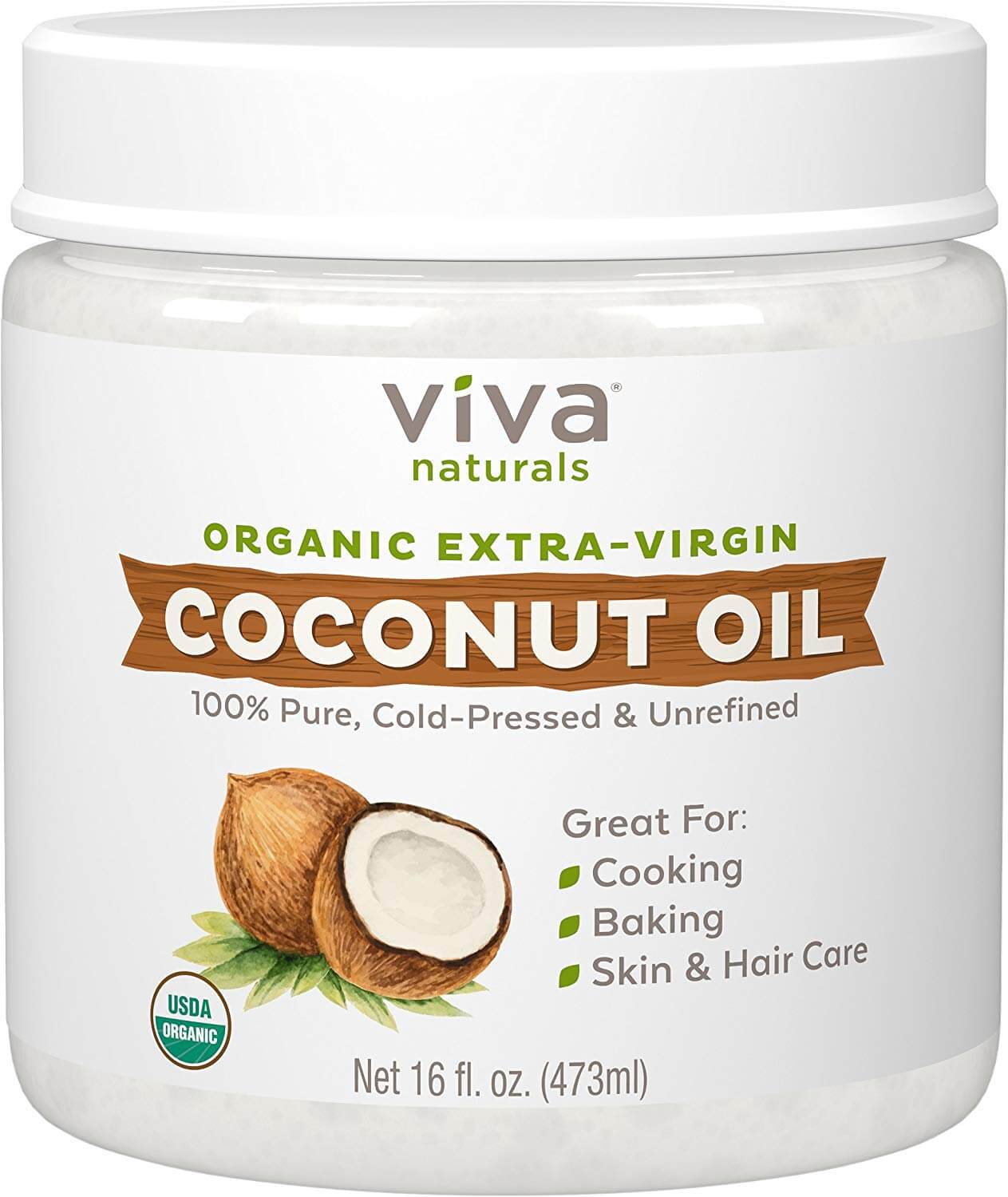
Viva Naturals Organic Extra Virgin Coconut Oil
DIY facial serum with oils for oily skin
While oils shouldn’t be the only thing you use for your skin, they can be very beneficial.
I always like to balance between hydrating products (I love a great rosewater toner!), hydrating creams, and nourishing oils.
And the best part about oils for oily skin?
They’re ridiculously easy to make, even if you’re a complete beginner and know very little about DIY skincare.
We’ll have a look at how to make your own serum from scratch.
Yes, buying gorgeous commercial skincare is a great way to spoil yourself, but you can easily make an effective oil at home that lets you save some money at the same time.
The perfect combination of oils for oily skin!
- 14ml Grapeseed oil;
- 7ml Hemp seed oil;
- 5ml Rosehip seed oil;
- 3ml Evening primrose oil;
- A few drops of vitamin E oil;
- Dark amber bottle (30ml).
Process
Combine all the ingredients in a dark amber glass bottle.
You can also add a few drops of essential oils into the oil; lavender is lightly relaxing and great for acne-prone skin.
Other oils for oily skin are also ylang-ylang, oregano, chamomile, patchouli, geranium, and myrrh.
Keep in mind that essential oils are very potent and powerful.
Add only a few drops into the mix.
Vitamin E oil is a must in the recipe.
It helps to prolong the shelf life of the facial oil (rosehip oil is prone to oxidation).
Apart from that, it’s also an antioxidant that’s great for the skin!
When using facial oil, make sure not to drop any water into the oil, or it will spoil.
I recommend using a dropper bottle or a pump bottle.
A dropper bottle will make a bit more mess than a pump, but whatever you have on hand works great.
I’d recommend you use this serum in the evening, after you cleanse, hydrate, and moisturize.
Apply it with slow circular movements, you’ll only need a few drops.
A little goes a long way!
It’ll work its magic through the night, and you’ll wake up with soft and nourished skin!
Oils for oily skin: a recap
While it seems strange, there are specific oils that are actually beneficial for oily skin.
These oils can help replenish and feed your skin, but remember that oils are still oils.
While they can do wonders for the health, the glow, and the smoothness of your skin, they can also cause occasional minor side effects, so use them carefully.
What I like to do is test the oils to see how my skin reacts to them.
I can feel pretty fast what works for me and what doesn’t.
If you pay attention, you can improve your skin health efficiently and affordably!
Never be afraid to use oils for oily skin anymore.
Like these tips?
Scroll down for more!
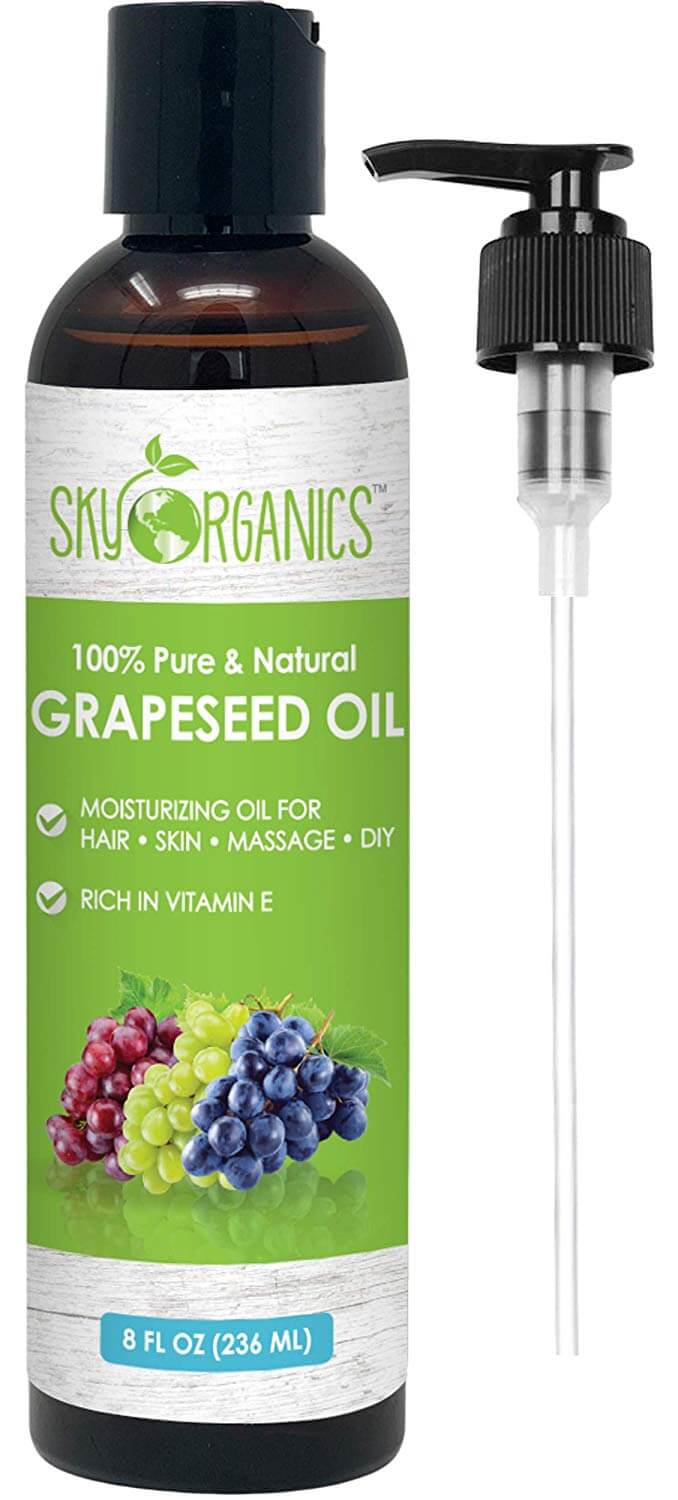
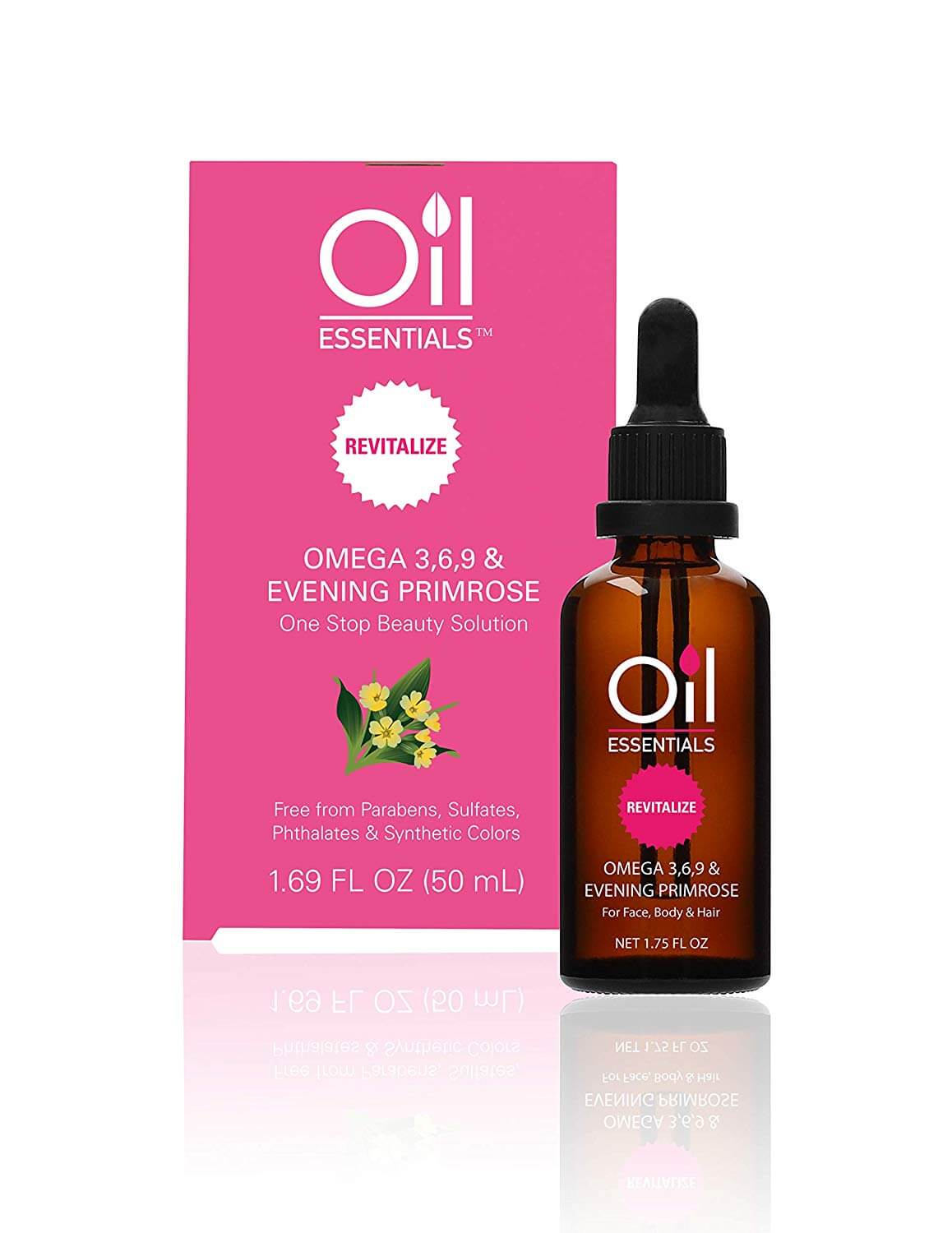

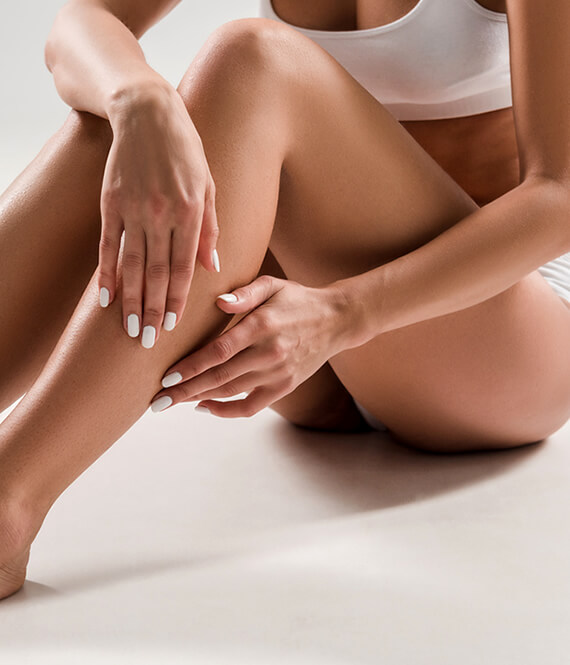

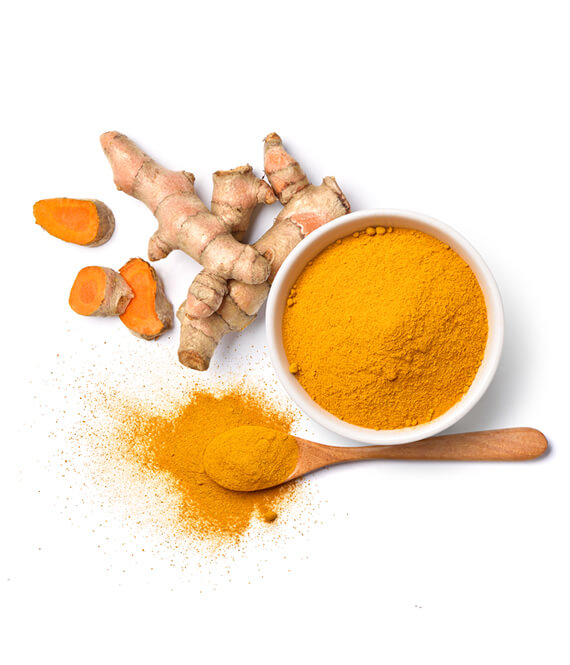
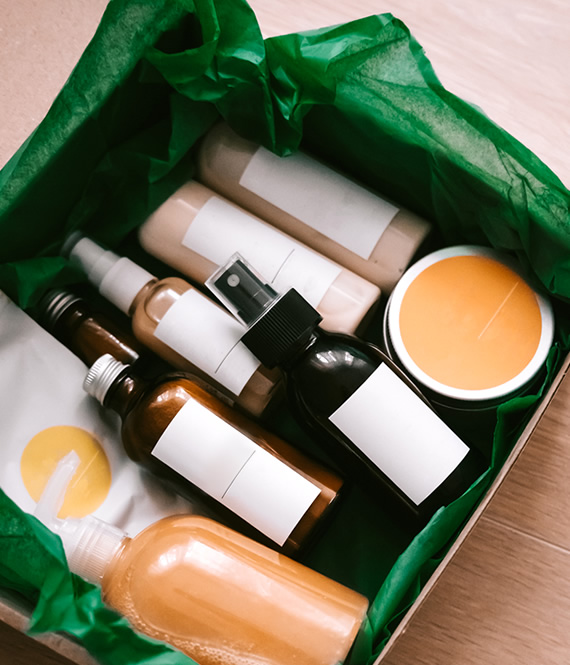
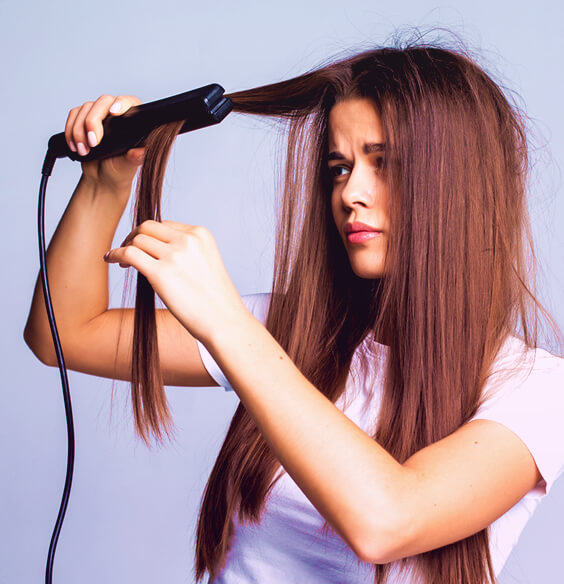



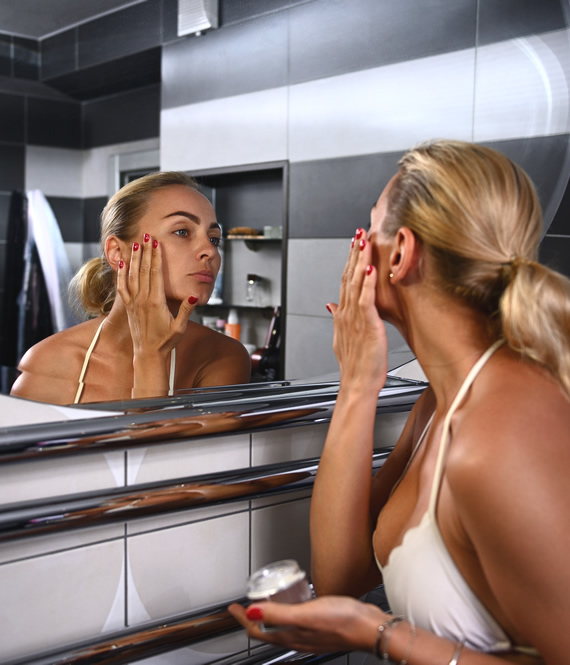
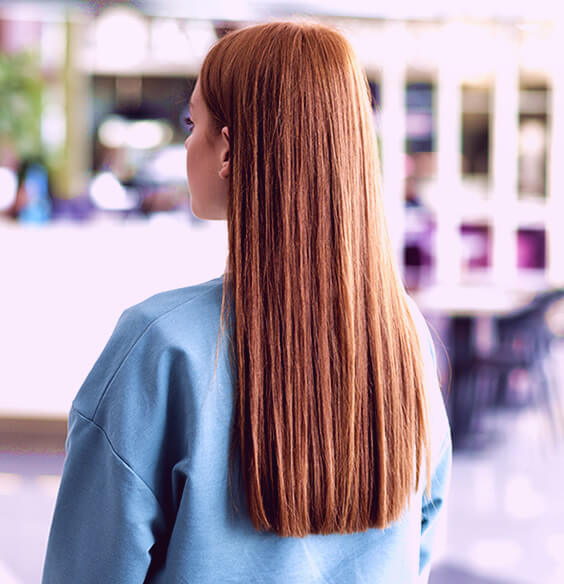

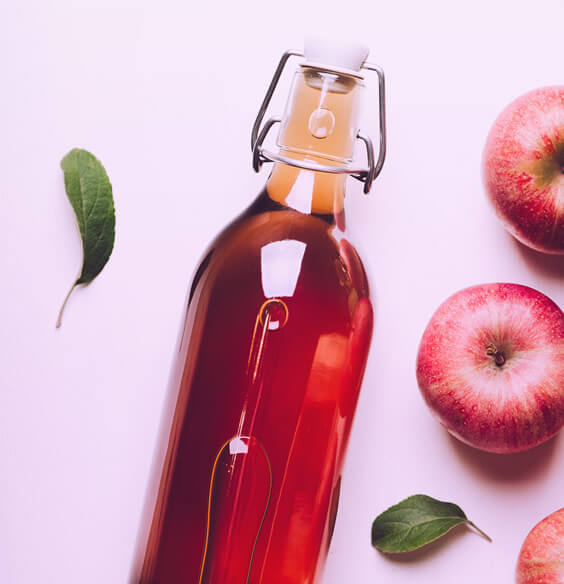
Leave a Comment